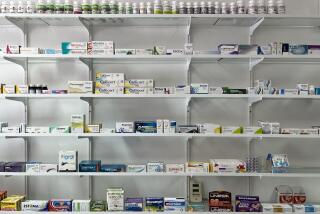Tips to prepare for a safe, healthy trip
- Share via
What health-related steps should I take before I go?
About two months before your trip, schedule an appointment with your doctor or a travel medicine specialist. You may need to update your vaccines or get a vaccination you’ve not had before. Why so early? Some vaccines take time before they become effective.
How do I know what I need?
You can find out which vaccines and drugs are recommended or required for your destination at the Centers for Disease Control and Prevention website, www.cdc.gov/travel. A travel medicine specialist should also be able to advise you.
What if I get sick abroad?
Join the International Assn. for Medical Assistance to Travellers, www.iamat.org, a nonprofit that offers referrals to physicians and other medical practitioners who speak English and have trained in North America or Europe. Membership is free, but donations are welcome. Many times, the U.S. Embassy or the concierge at your hotel can recommend doctors.
Do I get free healthcare?
The short answer is no. Healthcare abroad is not guaranteed to be free, but in many countries it is cheaper than in the U.S. Before you set foot on a plane, check with your healthcare insurer to see what your policy will cover. Many policies don’t cover emergency or evacuation costs abroad, and Medicare and Medicaid programs do not pay for medical services outside the U.S. But you can buy policies to cover emergency treatment and evacuation while you are traveling.
What if I die abroad?
Planning will make it easier for your loved ones to handle your death abroad. The State Department can assist your family in explaining how to bring your body back to the U.S. or hasten the process, but they won’t foot the bill. Consular officials recommend these steps:
Register your itinerary and emergency contacts with the State Department at https://travelregistration.state.gov.
Make sure you have a signed, valid passport, and fill in the emergency information page of your passport.
Leave copies of your itinerary, passport data page and visas with family or friends.
Is it safe to drink the water outside the U.S.?
It depends on where you are going. For the most part, Europe, Canada and other developed nations treat their tap water. But if you are unsure, take steps to ensure you have safe drinking water. Boiling water for at least a minute will kill bacteria, viruses and parasites. Bottled water is the next best alternative, but make sure the seal has not been broken before you drink it.
Can’t I just use chemical disinfection?
Chemical disinfection, with iodine or chlorine tablets, will also work, but these leave an aftertaste. Iodine isn’t recommended if you are pregnant or have a thyroid condition.
Does a portable water filter help?
Portable water filters can remove some types of unhealthful agents in drinking water, but not viruses, so you may have to treat the water with chemicals anyway. For more information: www.cdc.gov (click on Traveler’s Health, Safe Food and Water, and Treatment of Water to Make It Safe for Drinking).
Should I buy insurance?
First, find out what your health insurance policy will cover. Then evaluate the risks of your trip, what you are doing and where you are going. If you are doing something adventurous where you may risk life and limb -- white-water rafting in Nepal, climbing Mt. Everest or hiking in the Dolomites of Italy -- or going someplace where health risks are higher -- Africa, Asia, parts of Europe and South America -- you may want to consider travel health insurance. Read your policy carefully to determine what is covered and be aware of the exclusions.
I have to take prescription medicines daily. Are there rules about traveling with medicines?
Ever since the Transportation Security Administration imposed its ban on liquids and gels in containers larger than 3 ounces, carrying medical supplies and medicines has been confusing. For now, the TSA allows liquid prescription medications and some over-the-counter liquids if they are necessary for your disability or medical condition. If they are in containers larger than 3 ounces, pack them separately from that quart-size plastic bag. You must declare them to the TSA officer and you may have to take your medications out of your carry-on to show the TSA agent. For more info, see www.tsa.gov.
I use a pill minder. Is that OK?
While you are traveling with those medications, keep them in the original prescription bottles or containers and put them in a pill minder later. Travel with a duplicate prescription from your doctor in case you need to get a refill. Pack a list of the medicines you are taking and the dosage, and include your physician’s name and number on the list. Always put your prescription medications in your carry-on.
Can I bring back prescriptions I buy abroad?
Don’t assume because a drug sold in another country that it is legal in the U.S. The federal Food and Drug Administration tells travelers to avoid buying drugs abroad: www.fda.gov/ora/import/.
More to Read
Sign up for The Wild
We’ll help you find the best places to hike, bike and run, as well as the perfect silent spots for meditation and yoga.
You may occasionally receive promotional content from the Los Angeles Times.







